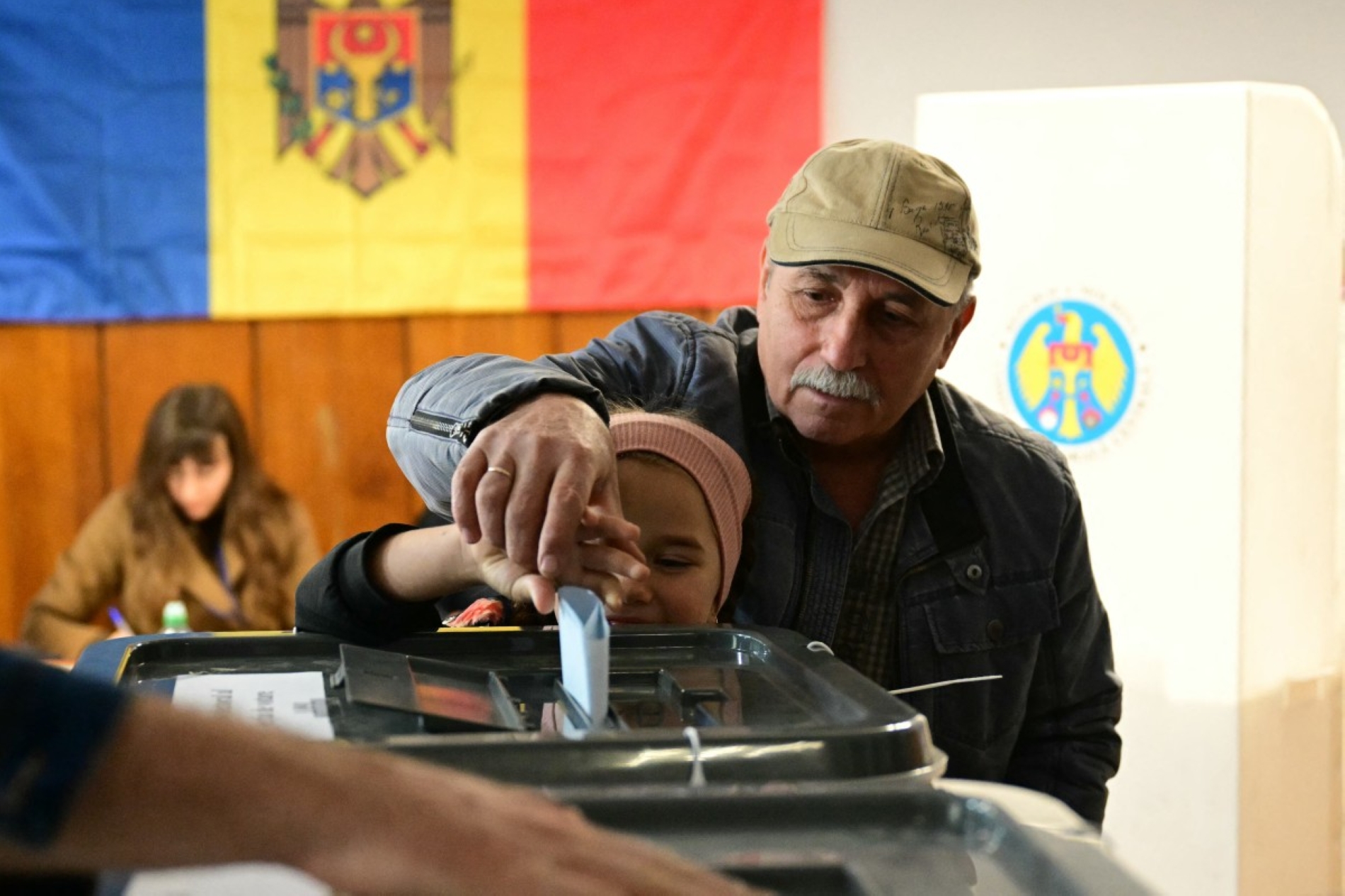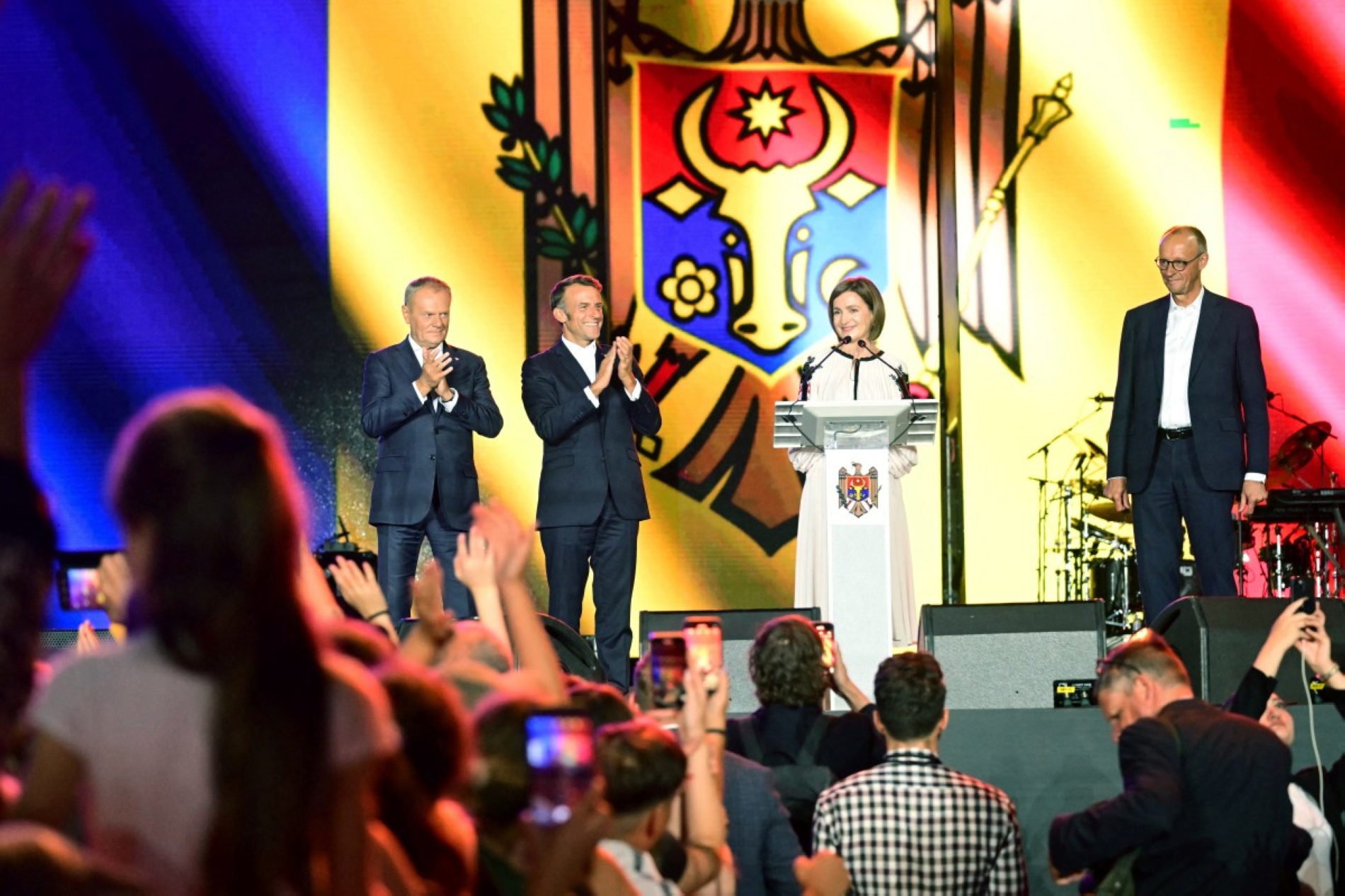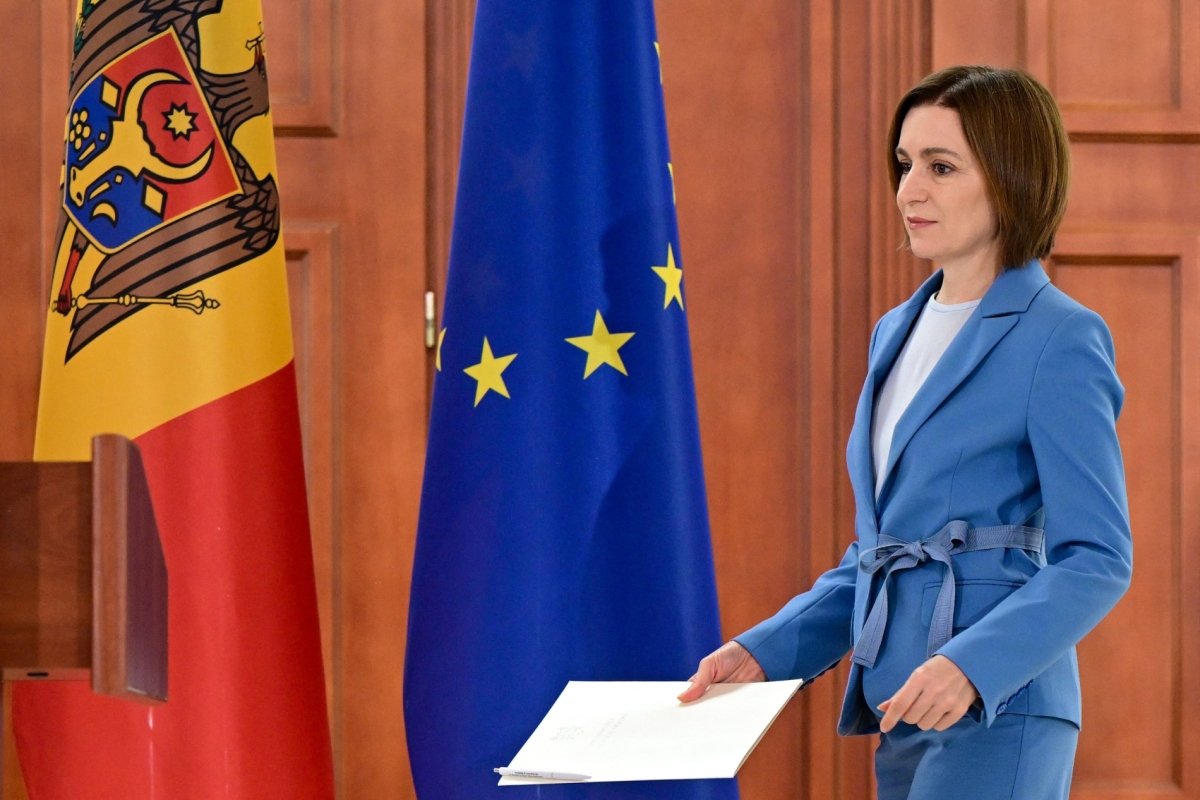The success of Moldova’s ruling pro-European Union party in the country’s parliamentary elections will be welcome news for Western supporters of Ukraine in its war against Russia.
The election campaign, which resulted in the ruling Party of Action and Solidarity (PAS), headed by President Maia Sandu, winning a decisive majority in the country’s 101-seat parliament, was marred by accusations of constant Russian interference.
The election concluded with Sandu’s party winning just over 50% of the vote. This compares with around 24% for the pro-Russian Patriotic Bloc, according to results published on the election commission’s website.
Moldova—a small country of 2.4 million people that borders Ukraine and has a pro-Russian breakaway region of Transnistria—has long been divided over whether to move closer to Brussels or maintain its Soviet-era relations with Moscow.

The EU claimed the election campaign had been overshadowed by widespread Russian interference, including vote buying and fomenting unrest and “an unprecedented campaign of disinformation”.
Russian interference in Moldova—which declared independence from the Soviet Union 34 years ago— increased significantly after Russia’s 2022 invasion of Ukraine, following Sandu’s government's signing of a UN Resolution condemning Russia's aggression against Ukraine. On 3 March 2022, Moldova followed Ukraine by applying for EU membership.
Last year, Sandu—who studied at Harvard University in the United States and previously worked at the World Bank before entering politics—called a referendum on enshrining the goal of EU membership in the Moldovan constitution, with the "yes" vote winning a narrow victory.
In a bid to reassure Moldova of the West’s support during the election campaign, the leaders of France, Germany and Poland travelled to Moldova in August to show support for the country's accession to the EU, as well as warning of Russia's "relentless" efforts to thwart the country’s EU ambitions.

Defiant tone
Sandu struck a defiant tone during the visit when she told her European allies her country’s bid for EU membership was "not a distant dream, but a project we are working on", one that is vital as a guarantee of security.
"The merciless war that Russia wages against Ukraine shows us daily that Europe means freedom and peace, whilst Putin's Russia means war and death," the Moldovan president declared.
Prior to the vote, Sandu had publicly accused Russia of spending “hundreds of millions of euros” to subvert her country’s parliamentary elections.
“The Kremlin is pouring hundreds of millions of euros to buy hundreds of thousands of votes on both banks of the Nistru river and abroad,” she said. “People are intoxicated daily with lies. Hundreds of individuals are paid to provoke disorder, violence, and spread fear.
“If Russia gains control over Moldova, the consequences will be immediate and dangerous for our country and for the entire region. Every Moldovan will suffer, no matter who they voted for.”
Following her warning, Moldovan security forces conducted massive raids across the country targeting people suspected of working on behalf of Russia to sow the seeds of disorder.
Sandu repeated her warnings of “massive interference of Russia” as she cast her vote, while the country’s cybersecurity service said it had detected several attempted attacks on electoral infrastructure, which were “neutralised in real time... without affecting the availability or integrity of electoral services”.
Meanwhile, pro-Russian officials in the breakaway region of Transnistria accused the Moldovan government of “numerous and blatant” attempts to limit the vote of Moldovans living in the separatist territory by reducing the number of polling stations.
Excitement in Europe
Sandu's comfortable victory in the poll has been warmly welcomed in European capitals, which had feared that Moldova might be the subject of Russian intimidation due to its continued support of Ukraine. The fact, therefore, that Moscow’s tactics failed to alter the outcome of the vote has been warmly welcomed in European capitals.
Moldova, you’ve done it again.
⁰No attempt to sow fear or division could break your resolve.
You made your choice clear:
⁰Europe. Democracy. Freedom.
Our door is open. And we will stand with you every step of the way.⁰
The future is yours.
— Ursula von der Leyen (@vonderleyen) September 29, 2025
European Commission President Ursula von der Leyen welcomed the result, posting on X, "You made your choice clear: Europe. Democracy. Freedom."
Meanwhile, Polish Prime Minister Donald Tusk praised Sandu, saying she had "saved democracy" and "stopped Russia in its attempts to take control over the whole region. A good lesson for us all".
Ukrainian President Volodymyr Zelenskyy said in a post on social media: "These elections showed that Russia's destabilising activity loses, while Moldova in Europe wins."











